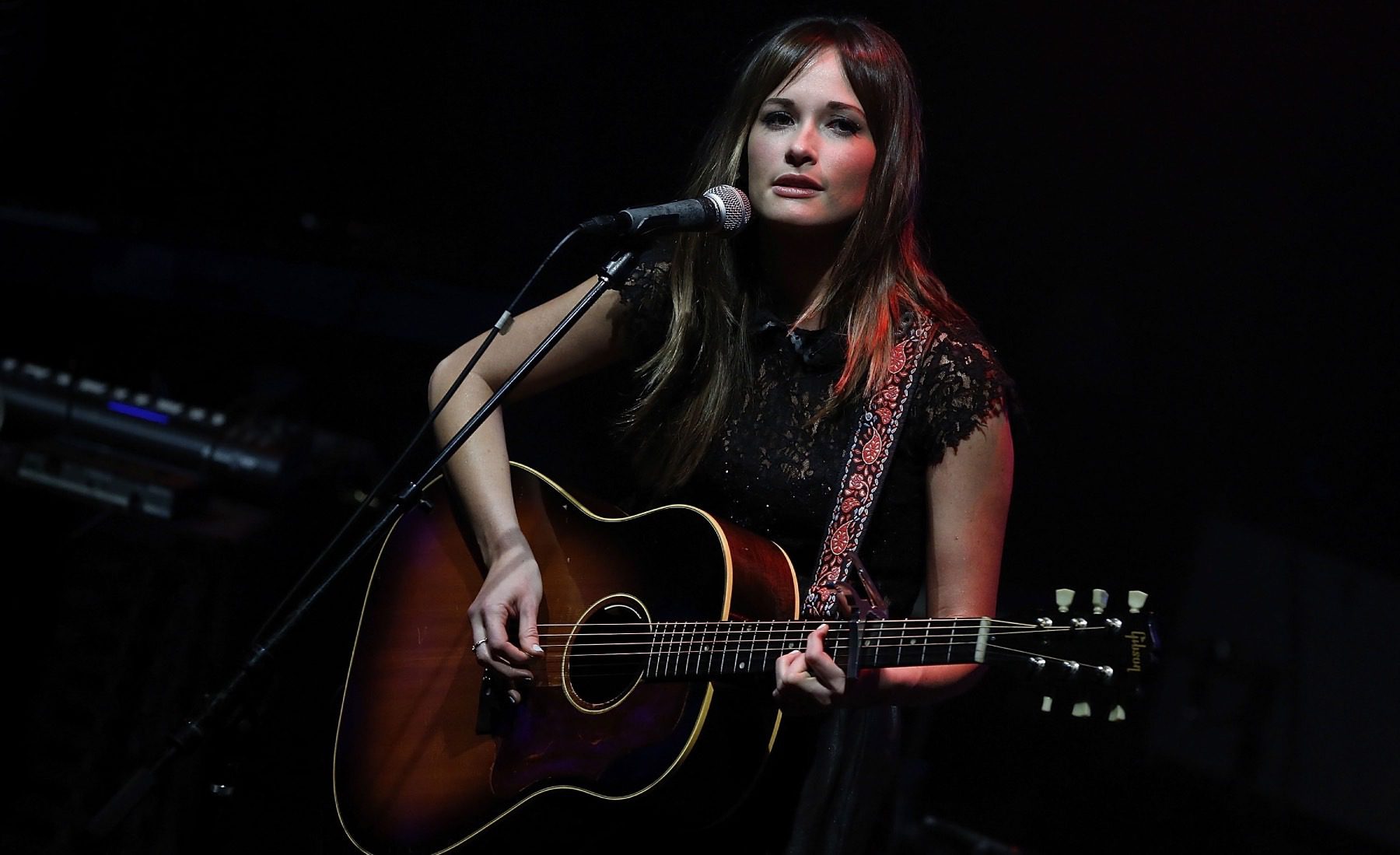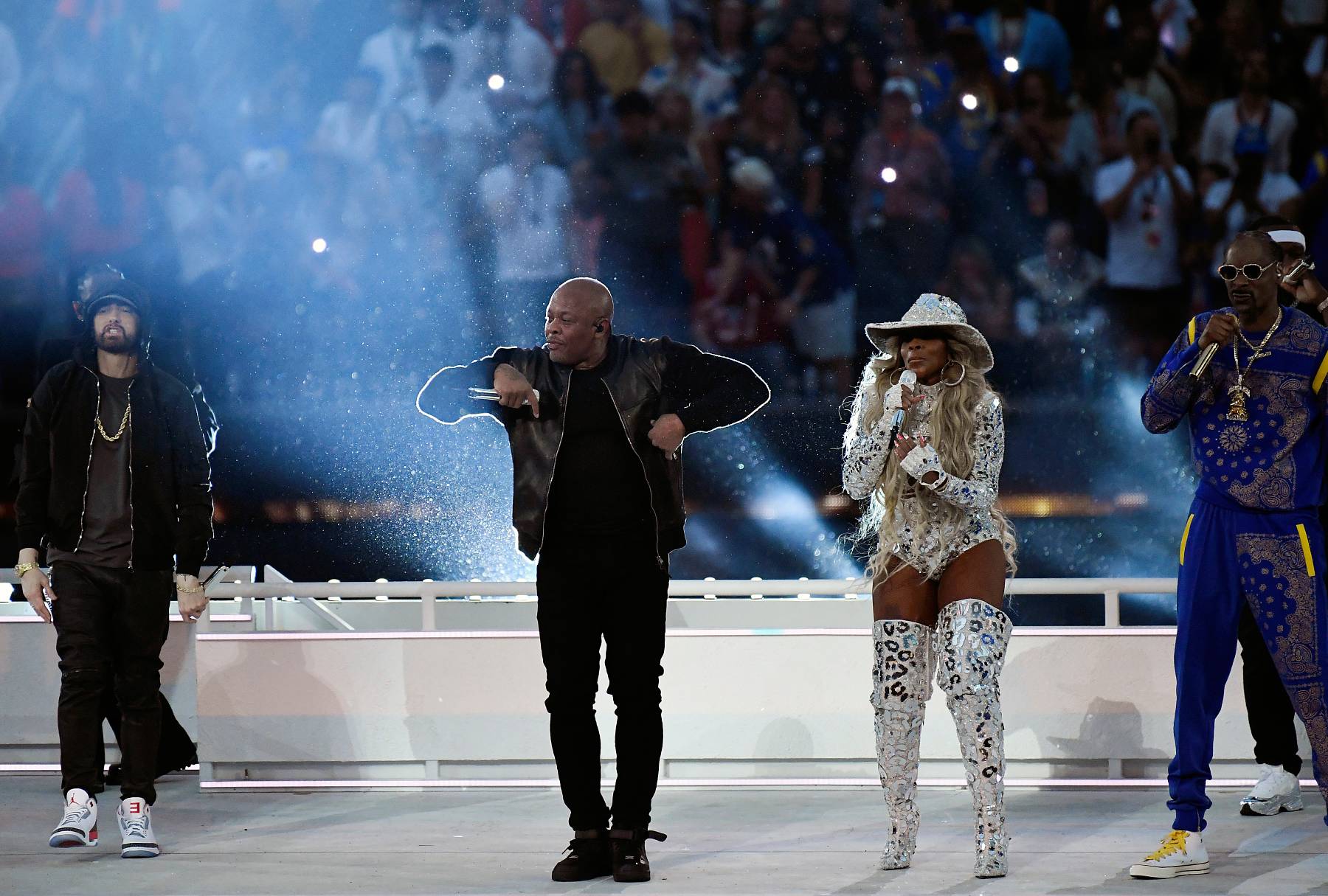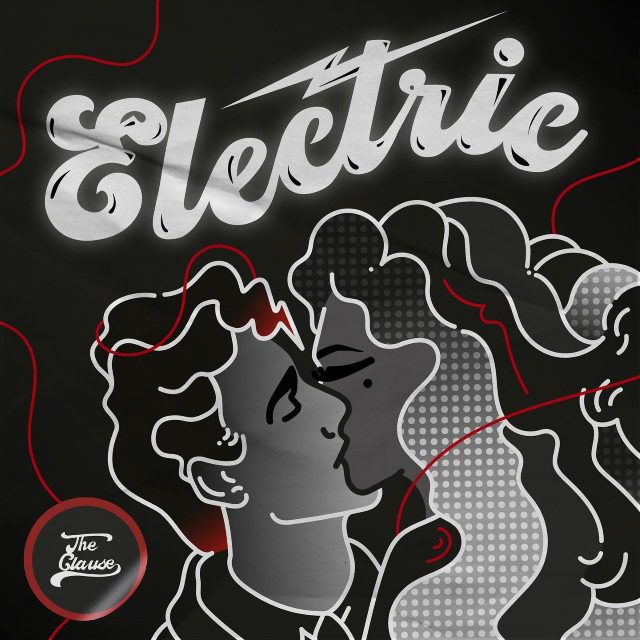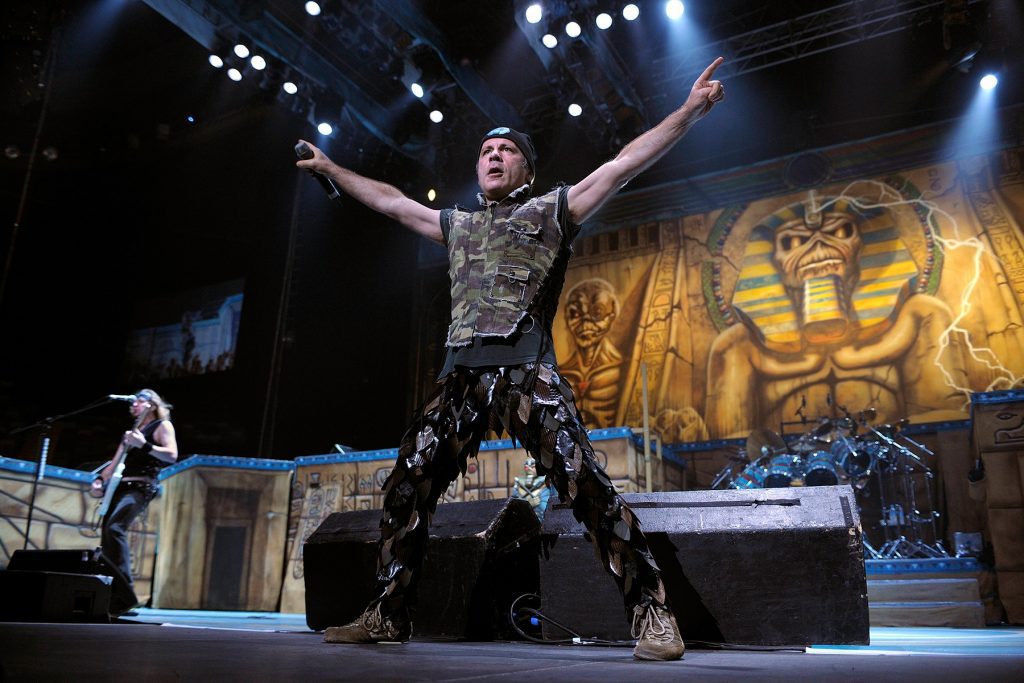
That Time Kacey Musgraves Wowed Nashville — But Still Didn’t Get Played on the Radio
In the new book Her Country: How the Women of Country Music Became the Success They Were Never Supposed to Be, author Marissa R. Moss explores the gender bias prevalent in modern-day country music and how artists like Kacey Musgraves, Maren Morris, Mickey Guyton, and others worked to overcome it.
Moss, a IndieLand contributor, talked to more than 70 sources — from artists to insiders — for Her Country (out May 10 via Henry Holt and Company) and came away with a compelling tale of what it means to persevere when the deck is stacked against you. In this exclusive excerpt from the book, a chapter titled “Can’t Remember Shit,” Moss places the reader in the chaotic midst of Country Radio Seminar, the annual Nashville gathering of radio gatekeepers where a then-unknown Kacey Musgraves is about to take the stage.
***
Did that just happen?
It was around noon on a strangely humid February day in downtown Nashville—not the kind of hour when you want to be onstage, as the southern sun hits the Ryman Auditorium’s stained-glass windows, if you had your choice—and Kacey was set to make her debut at the storied venue, a place where so much of country music history has been born and blossomed. Her grandma and grandpa had driven in from Texas, extra puffs of hair spray and pomade applied, just for this: the annual Universal Records “Team UMG” lunchtime event during Country Radio Seminar, known as CRS, where artists new and old sing their songs to woo a crowd of radio programmers, hoping they’ll feel motivated enough to add their singles into rotation. It’s not exactly glamorous, crawling from bed to the makeup chair to the stage before it’s even happy hour, but this pageantry was and is, as most things in Nashville are, accepted tradition. And a coveted ticket, too: this is where the stars, like Eric Church, Keith Urban, and Carrie Underwood, can be found, making it the perfect early-afternoon chance for humblebrag social media posts that send outsiders drooling, sniffing that juicy steak of celebrity smoking on the fire.
blogherads.adq.push(function () {
blogherads
.defineSlot( ‘medrec’, ‘gpt-dsk-tab-country-article-inbody1-uid0’ )
.setTargeting( ‘pos’, [“mid-article”,”mid”,”in-article1″,”btf”] )
.setSubAdUnitPath(“music//country//article//inbody1”)
.addSize([[300,250],[620,350],[2,2],[3,3],[2,4],[4,2]])
;
});
Up in the stiff wooden pews the radio programmers, record executives, and DJs ate their boxed lunches as lanyards dangled around their necks—the performers had to play to the sound of crunched chips and sandwich chewing, hoping a particularly potent verse doesn’t get lost in the rustle of a cookie being unwrapped. Not ideal, but it’s better than having to dog-and-pony in the crowded, sticky bars they’ll take to later, enduring unwanted advances from men who feel entitled to ogle their legs, steal a hug, or smell their hair, drunk on power and gratis tequila (there’s hardly a faster way to a radio guy’s heart, and playlist, than through a bunch of freebies, after all). This is how CRS went, anyway, with the lines between professionalism and the party blurred into an amorphous smudge of a week—to the point where the entire event had become known to attendees as “Can’t Remember Shit.”
For now, though, in the daylight hours, it was still supposed to be about the music, the business. The format. Kacey, new enough to town that her name was still unknown to many in the audience (unless they’d paid the attention they should have to the songwriters on Miranda’s “Mama’s Broken Heart”), smoothed her dress down, grabbed her guitar, and made her way out to middle stage, where she glanced at the crowd—mostly men, mostly still lunching and ready to talk over a young woman with a guitar if they had to—and introduced her song at the Ryman for the first time. It was “Merry Go ’Round,” that potent, scorching indictment of small-town life, myths, and complacency, and she had insisted that this was exactly the way she wanted to introduce herself to country radio, even if it wasn’t a breezy anthem or polite ballad. “This song is inspired by growing up in a small town in the South,” Kacey said, setting up the audience for what they were sure would be some kind of classic country lament for the bygone days at the tailgate, those idealized Friday night lights and holy Sunday mornings. Or maybe it would be a nostalgic nod to teenage love by the single stoplight, a diary entry set to simple chords, the way Taylor Swift had done it. It would be, they imagined, something well within the parameters that Music Row had neatly established for success.
blogherads.adq.push(function () {
blogherads
.defineSlot( ‘medrec’, ‘gpt-dsk-tab-country-article-inbody2-uid1’ )
.setTargeting( ‘pos’, [“mid-article”,”mid”,”in-article2″,”btf”] )
.setSubAdUnitPath(“music//country//article//inbody2”)
.addSize([[300,250],[300,251],[620,350],[2,4],[4,2]])
.setLazyLoadMultiplier(2)
;
});
They were wrong. She started strumming, her voice hitting crisply against the Ryman’s wood interior as she stood solemnly in a black dress and white heels, a streak of blond hair bisecting her dark bangs. Bandleader Misa Arriaga flanked her to one side and Emily Nelson, a cello player who came up through the Vanderbilt Blair School of Music, on the other. They peered at each other on occasion to keep the time, but mostly Kacey stared up to that top pew, looking both forward and into her past.
The room fell silent from the first note. There were no cookies opened, no sandwich bites taken, the fingerpicking on her guitar resounding in perfect echo, the way it can only when the people in the audience are frozen still and shocked into full attention, with- out an accidentally buzzing phone or whispered conversation. She received a standing ovation, rows and rows of crinkled chinos and checkered shirts visible above the railings. The only other artist to get the crowd on their feet that day was fellow Texan George Strait, for whom the lack of due respect would be akin to blasphemy. “Merry Go ’Round” wasn’t a drinking song, a party anthem, an ode to a boy long lost. It was a mirror to themselves, their friends, to the life they could have had or the one they left behind. It stung—no one had rubbed alcohol on a wound like that in years, especially not here, at Can’t Remember Shit.
Kacey walked offstage shaken. “Did that just happen?” she asked Stephanie Wright, who was waiting in the wings, watching the crowd as best she could from behind the drawn curtains.
“Yes, ma’am,” Stephanie replied. Luke and Shane both breathed sighs of relief—Luke, in particular, had been sweating the whole thing out harder than usual, even worse than Kacey herself. He was always the worrier, absorbing any of the stress that others might be able to shake off better, and these were tender, special songs they’d all written together not long ago. “She didn’t even seem nervous,” he said. “But I was nervous. I knew it was a lot of people’s first time to hear her. It was huge.” Shane, as soon as the room stood up when she hit the chorus, couldn’t help but cry.
blogherads.adq.push(function () {
blogherads
.defineSlot( ‘medrec’, ‘gpt-dsk-tab-country-article-inbodyX-uid2’ )
.setTargeting( ‘pos’, [“mid-article”,”mid-articleX”,”mid”,”in-articleX”,”btf”] )
.setSubAdUnitPath(“music//country//article//inbodyX”)
.addSize([[300,250],[300,251],[3,3],[620,350]])
.setLazyLoadMultiplier(2)
;
});
CRS at the time had already been a strange, even troubled place for women like Kacey to make themselves heard, and a risky one, involving more than just the temperamental taste of a program director. Sometimes, it was a dangerous place, where women found themselves in hotel rooms and dirty bars with DJs who had had too much to drink, or too little respect for the women around them. There were panels and constructive events, for certain, but then day turned to night, or events turned from public spaces to private hotel suites, where men with power to throw around became bolder and more aggressive. Sometimes, no matter how uproarious the standing ovation, or how brilliant the performance, nothing was going to sway the artist into radio rotation other than some backroom deals that had already been made, weeks before the event even began.

Courtesy Henry Holt and Company
But opening up 2012 with a CRS debut like that was a promising start for someone like Kacey, and with a song she had fought so hard over to serve as her debut—the buzz about it was palpable, as program directors messaged their partners back home about what they’d just seen, and label executives bemoaned what they’d lost out on by not being the ones lucky enough to sign her. Kacey, mostly, was a little shocked. “She was taken aback,” Stephanie recalled. “It was pretty magical to see her get up there. That room was just overcome.”
There were plenty of women at CRS that year who thought they might break through, too. One of them, Katie Armiger, was also hav- ing a banner CRS week, with a showcase at Nashville club 12th and Porter, where she was able to hobnob with journalists and industry folks and start the arduous process of drilling her name into their heads long enough to enter into the territory of “familiar.” Katie had moved recently from Sugar Land, Texas, and she was on the brink of landing her own promising career, with a sweet but biting vocal style. She would eventually end up in a sexual harassment lawsuit with the very label that had signed her, alleging that they encouraged her to make herself appear more available and enticing to radio programmers. She went back to school years later, and the label, Cold River, dissolved, as did her dreams of being a country music artist. Though Katie gave up pursuing music full time, she became a Time’s Up– supported victim who ended up taking ownership of her masters and devoted her studies to feminist research and social justice.
blogherads.adq.push(function () {
blogherads
.defineSlot( ‘medrec’, ‘gpt-dsk-tab-country-article-inbodyX-uid3’ )
.setTargeting( ‘pos’, [“mid-article”,”mid-articleX”,”mid”,”in-articleX”,”btf”] )
.setSubAdUnitPath(“music//country//article//inbodyX”)
.addSize([[300,250],[300,251],[3,3],[620,350]])
.setLazyLoadMultiplier(2)
;
});
But this day, Katie did the dutiful rounds. She smiled and shook hands in an outfit that she felt was conservative enough for people to take her seriously, but tight enough to appease the men at her label who wanted her to look a little sexier, leave a little bit up to the creative imagination. She was grateful for the chance, at least—other women, like Rissi, had never even gotten the support to have an official CRS- sanctioned event, even at the height of “Country Girl.”
But Kacey had fought like hell to make her introduction from that stage with “Merry Go ’Round,” even though she’d been told time after time that maybe it would be best if she were to release something happy, something less critical, something a little . . . easier to take. Like Miranda when she first walked into that meeting with the label bosses at Sony, Kacey wasn’t going to waver. “I found myself being told that I really shouldn’t write about certain things—weed, homosexuality. I was told that a debut female had to release something upbeat. I really fought for my first single,” Kacey said at Variety’s Power of Women event, “saying, ‘I am willing to go down in flames for this song you are saying just isn’t going to work.’ And I was met with this word-for-word response, from a grown man who runs a company: ‘Well, sometimes in this business you have to do things you are not proud of.’ And I said, ‘That’s where me and you are very different.’ I was appalled.’”
Country music, and especially Music Row’s money machines, loved to praise small-town life and the people who make it vibrant, and, to a large degree, that’s a foundational part of the genre: the music, quite literally, of the country. But somewhere along the way, the meaning got lost—instead of asking questions, it became candy-coating. There could be no mistakes in that sort of life, no wrong opinions or wrong turns, only the right amount of tailgates, trucks, tan lines, football games on Friday nights. The men were all singing about these things from the comfort of Nashville mansions and Gulf Coast beach houses, but none of this seemed to matter to fans who found them to represent that space they had always felt lost in—and a space they felt was increasingly being swallowed in a culture that was drifting away from the conservatism they knew and toward a much more socially progressive atmosphere than they’d been raised in.
blogherads.adq.push(function () {
blogherads
.defineSlot( ‘medrec’, ‘gpt-dsk-tab-country-article-inbodyX-uid4’ )
.setTargeting( ‘pos’, [“mid-article”,”mid-articleX”,”mid”,”in-articleX”,”btf”] )
.setSubAdUnitPath(“music//country//article//inbodyX”)
.addSize([[300,250],[300,251],[3,3],[620,350]])
.setLazyLoadMultiplier(2)
;
});
“Merry Go ’Round” wasn’t interested in painting a rosy picture of the kinds of places Kacey grew up in, though, as much as she loved them and understood them. There are no heroes in the song, only humans, the kind of stuff that the teacher John DeFoore always knew Kacey had in her. A song like that would win as many fans as it would alienate. You had to be willing to be a little self-critical, and that wasn’t on the agenda: self-critique doesn’t make for a fun party.
“It’s sort of the musical version of [the movie] American Beauty,” said her then publicist Fount Lynch. “These are hard things to accept, especially when it’s nine a.m. on a Monday and you are driving your kids to school and the song comes on. And at the time, things were just very, very safe on country radio.”
How do you compete, anyway, with the guilty pleasure ease of Florida Georgia Line’s “Cruise”? Or the movie theater adaptation of small-town life as Jason Aldean tended to depict it in songs like “Take a Little Ride,” where the genre’s leading men praised dirt roads and truck rides? It’s not easy, if you want to play with the boys on country radio. And Kacey tried. She did. She had the conversations and played her songs for regional radio stations; she packed her bags and made the necessary stops along the way. Country music was supposed to be about the truth, but somewhere that started to fissure. Jason Aldean’s version wasn’t the whole story, but it went down easy. Kacey had the truth, but maybe no one wanted to hear it. Maybe we would stop wanting the truth: an Instagram filter on our country music.
“Coming from a small, conservative Texas town, I’ve grown up with this. We’re all guilty of having something that keeps us distracted—no matter the vice,” Kacey said to American Songwriter. “Our comfort zones make us settle and I think there’s hope in knowing that everyone has felt this way.”
A few weeks after CRS, Kacey found herself back at the Basement, where she would properly announce that she was going to be opening for Lady Antebellum (now controversially known as Lady A, a name they adopted in the wake of the Black Lives Matter movement that had also been used for decades by the blues singer Anita White). The small venue was packed so tightly this time that people were trying to watch from up the ramp across the stage past the bathroom to the front door, standing up on tiptoes to get a glance of her in a pink skirt and her blond-striped bangs. It felt like a convergence: the usual crowd who makes the rounds at kiss-ass number one parties, but also the kids who you’d see at small clubs on a Tuesday night. Kacey played “Merry Go ’Round” and other songs she had been working on for the upcoming album at a writing retreat in Texas, but she also played one about smoking weed with John Prine that some chuckled at uncomfortably: “I ain’t one to knock religion,” she sang, going exactly where you’re not supposed to, “though it’s always knocking me.”
blogherads.adq.push(function () {
blogherads
.defineSlot( ‘medrec’, ‘gpt-dsk-tab-country-article-inbodyX-uid5’ )
.setTargeting( ‘pos’, [“mid-article”,”mid-articleX”,”mid”,”in-articleX”,”btf”] )
.setSubAdUnitPath(“music//country//article//inbodyX”)
.addSize([[300,250],[300,251],[3,3],[620,350]])
.setLazyLoadMultiplier(2)
;
});
The dates with Lady A took her abroad, opening shows in Europe in the shadow of massive tours like Taylor’s and Carrie’s, where she’d be left to make sure the merch table was running smoothly and she had enough gear to get herself stage-ready before the show each night (John Mayer had even handpicked her as an opener based on the strength of her CRS show, the video of which went somewhat viral, before having to cancel due to problems with his throat). “Merry Go ’Round” hadn’t been released as an official single to country radio yet, but it had been circulating online enough to pick up steam. One particular night in Ireland, Kacey had stumbled upon a group of fans gathered outside the arena: to their surprise, she approached them and asked if they might be able to help her find a curling iron. At one point Kacey ducked aside to check her Twitter in between stops, and saw that Katy Perry had been raving about “Merry Go ’Round” online. One of the fans tagging along for the hunt remembers Kacey freak- ing out: approval from someone beyond the country genre signaled to Kacey that she was doing something right, and that maybe her world could crack open the way she had imagined.
By September, journalist Jody Rosen was calling Kacey the future of country music in Slate, and even infamous gossip blogger/cultural phenom Perez Hilton had signed on. Though Perez would grow to be a divisive figure, for good reason (especially due to outing multiple queer celebrities without their consent), he was an odd but influential advocate for women in country music. That October he recruited Kacey to play his “One Night in . . . New York City” show at the Highline Ballroom, an annual benefit for the VH1 Save the Music Foundation. Perez, like many gay men before him, had been drawn to the women of country music for their bold and open-arm qualities. “I grew up in the nineties, where it was Shania and the Dixie Chicks,” he said. “And others like them and, of course, Dolly Parton. They really welcomed non-country music listeners into their worlds of country, because their sound transcended the genre and was accepted by other radio formats.”
That Kacey was headlining a show for a queer pop culture blogger at the same time “Merry Go ’Round” went to country radio spoke directly to the degree to which she felt comfortable bucking tradition, even a little intentionally, sometimes. “At soon as I heard ‘Merry Go ’Round,’ I felt like it was unlike anything I had heard before, and continues to be that way because it felt dangerous,” Perez said. “And it was dangerous.”
blogherads.adq.push(function () {
blogherads
.defineSlot( ‘medrec’, ‘gpt-dsk-tab-country-article-inbodyX-uid6’ )
.setTargeting( ‘pos’, [“mid-article”,”mid-articleX”,”mid”,”in-articleX”,”btf”] )
.setSubAdUnitPath(“music//country//article//inbodyX”)
.addSize([[300,250],[300,251],[3,3],[620,350]])
.setLazyLoadMultiplier(2)
;
});
Seeing Kacey get signed and start touring gave Maren hope, but she also wasn’t quite sure anymore that she even wanted to pursue a career as an artist. The dusty bars, the drifting faces, and that life of being a soundtrack to other people’s drinking habits was wearing on her—or maybe it was the insular world of Arlington that had put her in a box since before junior prom. But she was still doing it anyway, still racking up the accolades in Texas as if she’d been around for three times as many decades (Fort Worth Weekly joked that “Maren Morris won the Female Vocalist category for, like, the 20th year in a row”). Her album, Live Wire, was “a mature effort from a singer who’s practically grown up on record.” But it was still an independent release, and she had bigger hopes, her producer and collaborator Taylor Tatsch remembered: hopes that it would catch the ear of some label somewhere or radio outside of Texas. Somehow, neither seemed to happen. The delta for women on radio was growing stranger and stranger, though—there was mass superstardom like Taylor Swift, reality-born stardom like Carrie (who, by this point, had proven that her talent transcended any gatekeeping filter of American Idol), and then little in between, short of the legacy acts paid some sort of sideways respect on behalf of being in the public eye for so long, like Reba. Not the degree of respect they deserved, but respect that made people feel a little bit better about ignoring the work of women overall. Miranda, as usual, was the lone mainstream female rebel, but it wasn’t even a straight-ahead road for her, especially when it came to radio. The gossip about her love life and relationship with Blake Shelton drowned out so much else far too often. “I did tell Miranda, we need to get people talking about your music again and not your life,” Natalie Hemby remembered.
On the Texas scene, it was even more limited. You had to be either full-on country or something entirely separate from the genre— especially for women, who always ended up in teeny-tiny print on festival rosters or smashed into “Girls Rock Nights.” “Bars were always patting themselves on the back for it,” said Taylor Tatsch. “Like, ‘oh, we’re doing an all women night!’ But that’s not what they needed. They needed to be opening for the big Texas headliners. But by the time Maren was twenty-two, and still working that Texas scene, everyone still thought of her as being, you know, fourteen. So she was spinning her wheels, as a mature woman writing mature songs and not getting the love I think she deserved from the Texas music scene.”
She was also intent on pushing what exactly she could do in the frame of—and outside of—country music. For Live Wire, she made a conscious decision not to incorporate steel guitar or too much twangy instrumentation, experimenting instead with piano-based songs. Taylor could see that she really wanted it to stand out and stand alone.
blogherads.adq.push(function () {
blogherads
.defineSlot( ‘medrec’, ‘gpt-dsk-tab-country-article-inbodyX-uid7’ )
.setTargeting( ‘pos’, [“mid-article”,”mid-articleX”,”mid”,”in-articleX”,”btf”] )
.setSubAdUnitPath(“music//country//article//inbodyX”)
.addSize([[300,250],[300,251],[3,3],[620,350]])
.setLazyLoadMultiplier(2)
;
});
“I must have been nineteen when I realized I had been touring Texas for almost a decade,” Maren said, “and I needed a new challenge.”
Not thinking much of it, Maren and the band headed to New York in June 2012 to compete in the New Music Seminar. An eighties-era institution, it had faded out and shuttered in the nineties after festivals like South by Southwest turned the endeavor into a full-on business, where it became less about spotting unsigned acts and more about labels building their marketing plans for artists already on the rise and looking for a good party to drop a lot of swag. But the founders resurrected New Music for a few years due to the almost unmanageable amount of good talent that, in the age of the internet, was able to find an audience, changing the meaning of what an independent career in music could look like to begin with.
Maren and Taylor flew up to New York from Texas, staying at a hotel downtown and staging practice at a house in Brooklyn referred to as “The 1984,” a place where a bunch of ex–Dallas area musicians crashed or cohabited, including ones who both of them had gigged or crossed paths with over the years, like Nolan Thies and Cooper Heffley. The 1984 house was prime artistic mayhem—at least eight or ten musicians living in the same Williamsburg apartment, somehow cramming their bodies and day-to-day belongings in with an ungodly amount of recording equipment, crappy, cheap instruments, or what- ever you could bang on or squeeze a sound from. Books propped up computers and monitors, mics wrapped up with packing tape. It was chaotic, but it also felt perfect.
Maren had gotten to the Artist on the Verge Finals at New Music, to her surprise, and any free moment would be dedicated to rehearsing and tightening up their set. Taylor practiced on a broken-down drum kit, barely giving any thought to the potential weight of the moment— his wife was pregnant, and they were enjoying being in the city together before they’d become parents soon. Maren, in a Hawaiian-print tube dress, tinkered and tuned her guitar. “Should we be nervous about this?” she asked Taylor. He didn’t know how to answer: there were hundreds of bands and they had no real expectations—Maren was already on the fence about making the move to Nashville anyway, and this was another chance to play a show and sample another city, another way of life. Maybe she’d move here instead, transfer schools, get a bartending gig? Or should she hang it all up for a little while, go back to college in Texas, study history or writing?
They caught a few odd shows around the city after rehearsal, some Chinese food and cheap drinks, and the next day headed to a since-shuttered venue called Santos Party House. The vibe was crowded and hot, with plenty of people exhausted from the previous day’s activities. Local DJ Jonathan Clarke from the station Q104.3 introduced Maren—she was in a white skirt, black tank top, and angular crop to her hair swinging by her face, the antithesis of what anyone had come to generally expect when they thought about women in country music and their long blond hair extensions.
blogherads.adq.push(function () {
blogherads
.defineSlot( ‘medrec’, ‘gpt-dsk-tab-country-article-inbodyX-uid8’ )
.setTargeting( ‘pos’, [“mid-article”,”mid-articleX”,”mid”,”in-articleX”,”btf”] )
.setSubAdUnitPath(“music//country//article//inbodyX”)
.addSize([[300,250],[300,251],[3,3],[620,350]])
.setLazyLoadMultiplier(2)
;
});
Maren was the only country or roots-leaning artist in the bunch— other finalists were rapper Black Cobain, duo Ninjasonik, and indie rock band the Dig—out of one hundred contenders. The room was full of, as Maren put it, “movers and shakers,” including even some Nashville executives. Maren put on a pleather skirt and brought out her acoustic, playing songs off Live Wire with a bit of extra fire—and, to her utter surprise, ended up winning the whole thing. “I was the only country artist and everyone else was really artsy or hip-hop, and I thought there was no chance in hell that I am going to walk away with anything from this other than a key chain,” Maren remembered. There was no big party for the band after, no late-night drinking at the bar. But something felt as though it had finally shifted.
After some additional reassurance from her friends and parental encouragement, Maren spent the last few months of the year settling things up in Texas, playing gigs, and searching out cheap houses on Craigslist to rent in Nashville. Her last official performance as a Texan was a night at the Grease Monkey, swapping sets with her friend Van Darien as she’d done so many nights before. She sat on the rickety wooden stool one last time, tuned her guitar, and then, by the first week of January 2013, she was gone.
It was an anniversary, and it was also a first of hopefully many nights back at the famed Ryman Auditorium. Mickey had moved to Nashville herself just about a year before, and she was looking back on those months with a sense of wistful nervousness: there were the huge steps forward, like signing her deal with Capitol Records, and there were the huge steps back, which usually came with the utterance of words about her skin color or the way she wore her hair or her gender, or knowing glances in boardrooms when they discussed the marketing plans around her music.
The year 2013 was kicking off as custom: with CRS, and it was set to be an important one for Mickey. The Ryman felt no different, really, than it did the year prior, gathered for the same Universal Records showcase, with mostly the same radio programmers in the same “Nashville-ready” outfits, which meant jeans with a little bit of extra flair and a windbreaker for the rain. But this year, it wasn’t just Kacey who was the talk of the Ryman Auditorium, playing “Follow Your Arrow” to yet another stunned crowd—it was Mickey. Mickey was already getting the usual feedback awarded to any Black artist trying to make a space for themselves in the genre regardless of how they actually came across sonically—too R&B for country, too country for R&B. But Mickey had champions at Capitol, vice president Cindy Mabe and Lori Christian, who worked public relations for the label (handling her press coverage).
blogherads.adq.push(function () {
blogherads
.defineSlot( ‘medrec’, ‘gpt-dsk-tab-country-article-inbodyX-uid9’ )
.setTargeting( ‘pos’, [“mid-article”,”mid-articleX”,”mid”,”in-articleX”,”btf”] )
.setSubAdUnitPath(“music//country//article//inbodyX”)
.addSize([[300,250],[300,251],[3,3],[620,350]])
.setLazyLoadMultiplier(2)
;
});
Even with an executive like Cindy on her side, Mickey still had to play by the rules—to keep the decorum up, to smile and shrug; and Cindy, beholden to the bottom line, had to do the same. The “lessons” of the past echoed in Mickey’s head: the Chicks. Rissi. Stand still, look pretty. Shut up and sing. They were only lessons, however, if you erred on the side of total compliance.
“Seeing the Dixie Chicks canceled really affected me,” Mickey said. “That was a little more terrifying to me than anything else. Shut your mouth, don’t have any kind of opinion or anything remotely unaligned with the country music industry or you will be canceled. And I feared that. That fear is very much in the community today.”
It wasn’t easy for Rissi to watch Mickey taking these steps and to start to grow even a small platform—she had never gotten the support to be able to play an official showcase, never gotten the industry backing that at least seemed, from the outside, to be surrounding Mickey (“seemed” proving to be the operative word). But it was thrilling at the same time, to watch a legacy that she had helped start ease just a bit farther through Mickey’s voice. “I’m gonna be completely transparent,” Rissi said. “My feelings were hurt. And I took it very personally. It wasn’t her. I wasn’t ever upset with her, or angry with her or anything. But seeing her and seeing the fact that it appeared she was welcome—that was hard.”
Mickey didn’t exactly feel welcome, but she sure tried to look like it, especially backstage, where she and her upright bass player were the only Black people in the entire room, and everyone tried not to notice, or maybe they didn’t even see the problem to begin with. That was nothing new anyway, the lone person of color in a space full of white on white. Mickey’s top was white, her skirt light gray, appearing white when the cameras snapped. Maybe she could soak it up, blend in, not have them see her for anything but her voice and her songs.
blogherads.adq.push(function () {
blogherads
.defineSlot( ‘medrec’, ‘gpt-dsk-tab-country-article-inbodyX-uid10’ )
.setTargeting( ‘pos’, [“mid-article”,”mid-articleX”,”mid”,”in-articleX”,”btf”] )
.setSubAdUnitPath(“music//country//article//inbodyX”)
.addSize([[300,250],[300,251],[3,3],[620,350]])
.setLazyLoadMultiplier(2)
;
});
It said a lot, though, about the space between the two women (and the space allowed to them) that Kacey had been able to run success- fully, so far, with her commitment to her own compass, while Mickey shivered at the thought. “I’m kind of a big believer in people doing whatever the hell they want to do, since I feel like society is probably going to have an opinion either way,” Kacey had said before she introduced “Follow Your Arrow.” If Mickey had said that, as a Black woman entering into this nearly exclusively white space, she would have been shunned.
Mickey had been rehearsing hard in the days prior, though, running through takes of her planned single “Better Than You Left Me” over and over, pacing the apartment to get her notes right and puffing a little white Vicks inhaler to keep her nasal passages clear. She’d never even entered the Ryman before, let alone had a chance to walk out onto its stage as a performer.
“I had no idea what CRS even was,” she remembered. “I thought I was just doing writer’s round, but I didn’t know it was a possible career-changing moment.”
She felt like she was floating out, her skirt dusting the Ryman floor, the unbroken circle of country music, when her name was called. The Ryman treated her with the same response they did when Kacey took the stage the previous year—a standing ovation. “She’s a superstar in the making!” wrote the website Sounds Like Nashville. Twitter lit up with praise. A debut CRS song, a standing ovation, but eventual crickets when it came to airplay, when the label finally decided to push the single two years later—this would be a pattern that Mickey would come to know again and again. For then, it felt like victory.
Mickey walked offstage and shot a look at one of her label reps. She blinked and smiled.
blogherads.adq.push(function () {
blogherads
.defineSlot( ‘medrec’, ‘gpt-dsk-tab-country-article-inbodyX-uid11’ )
.setTargeting( ‘pos’, [“mid-article”,”mid-articleX”,”mid”,”in-articleX”,”btf”] )
.setSubAdUnitPath(“music//country//article//inbodyX”)
.addSize([[300,250],[300,251],[3,3],[620,350]])
.setLazyLoadMultiplier(2)
;
});
“Did that just happen?”
Excerpted from HER COUNTRY: How the Women of Country Music Became the Success They Were Never Supposed to Be by Marissa R. Moss. Published by Henry Holt and Company. Copyright © 2022 by Marissa R. Moss. All rights reserved.




